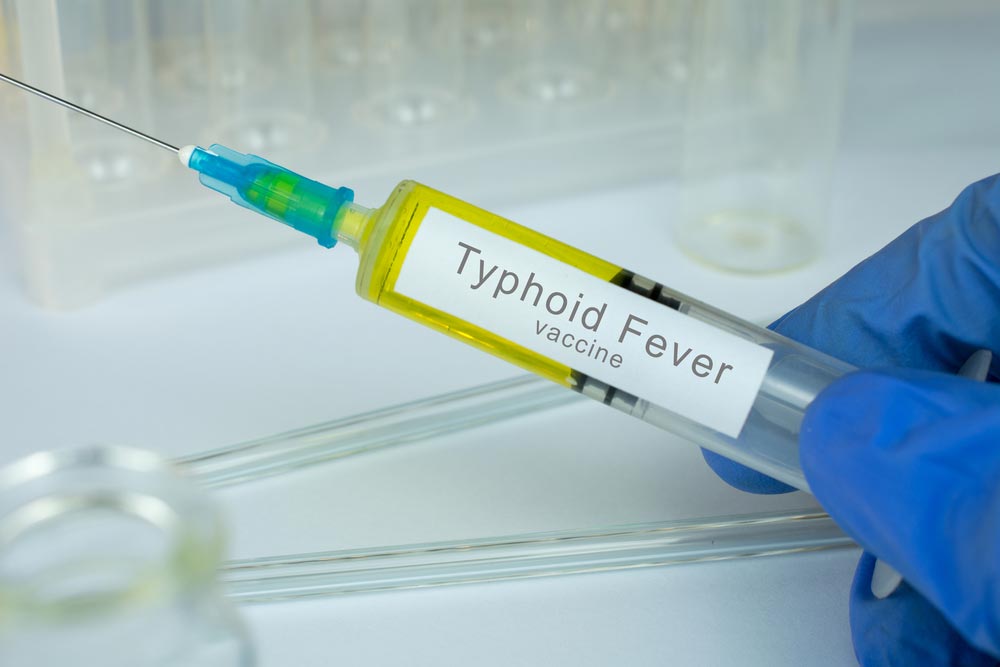You don't want to become a modern Typhoid Mary. If you've been visiting an area where typhoid fever is common, you might consider getting tested for typhoid. It's possible that you are carrying the bacteria that may cause other people to get sick.
Typhoid fever is a fatal illness in nearly 25% of individuals who contract it. This usually means that medical intervention is unavailable so they continued getting worse. It is also contagious among humans.
How does one get typhoid fever? What is the difference between typhoid fever and paratyphoid fever? Is asymptomatic typhoid fever possible? Is typhoid fever treatable? Is there a vaccine for typhoid?
Continue reading to learn everything that you need to know about typhoid and paratyphoid fever. We'll answer all of your questions below.
What Is Typhoid Fever?
Typhoid fever is an illness caused by Salmonella typhi bacteria. The bacteria causes an infection in the gut through the ingestion of untreated water and uncooked food.
It is commonly found in areas with poor sanitation and hygiene practices. This includes areas where running water and safe disposal practices are unavailable. Typhoid is common in areas like India, Latin America, Middle East, and Africa.
Typhoid vs Paratyphoid Fever
Paratyphoid Fever is a milder version of typhoid fever caused by the Salmonella paratyphi bacteria. The symptoms aren't usually as severe.
What begins as an infection in the gut, typhoid will eventually make its way to the bloodstream. From there, the infection can spread to the organs. If it's not treated soon enough, it's possible that the infection can make its way back to the gut causing the infection to spread once again.
Typhoid is only living in humans. It can spread through human urine and fecal matter.
Typhoid Fever Symptoms
The symptoms of typhoid fever depend on:
- The type of bacteria
- How much of it you've ingested
- How long it's been since you became infected
- How old you are
- If you've had the infection before
The initial symptoms of typhoid include fever and headache. It may quickly develop into having a dry cough, feeling weak, and nausea. Generally, you will be feeling poorly overall. Children are likely to suffer from diarrhea while adults are more likely to struggle with severe constipation.
As time goes on, you might end up with an enlarged spleen and a loss of appetite. In more severe cases, typhoid can cause you to have difficulty hearing or swelling in the salivary glands.
Typhoid Fever Complications
One in five individuals who don't seek treatment for typhoid will die from the infection. When left untreated, typhoid can cause intestinal perforation and bleeding from the bowels.
Other complications might include myocarditis, encephalitis, or pancreatitis. You might also have issues with dehydration, abdominal pain, or abscesses. Jaundice and kidney failure are also possible.
With treatment, those with typhoid fever will most likely make a full recovery. However, relapse is possible. While it may happen as soon as you finish your antibiotics, it might come back at a later time.
Diagnosing Typhoid Fever
Typhoid fever is a life-threatening illness when it goes untreated. It is essential to seek medical treatment. To get a typhoid diagnosis, your doctor will assess your risk of infection. They will determine if you've been to one of these areas and you are presenting with the symptoms.
Your doctor will then run some tests to determine the presence of the bacteria. They may collect a stool, blood, or urine sample to run a culture. Your doctor may run a Widal test to check for proteins/antibodies. A bone marrow aspiration is most effective for checking bacteria levels during the beginning of the infection.
Typhoid Fever Treatment
Depending on the severity of your symptoms, you may be admitted so that medical professionals can care for you. The doctors will treat your typhoid and paratyphoid symptoms with antibiotics. If it is a more severe case, you may need steroids (in addition to the antibiotics) to get you to a point where you begin to feel better.
Medicine for lowering the fever may be necessary for recovery. When dehydrated, you will need to push fluids or get an IV drip to stay hydrated while recovering from the illness.
Avoiding Infection - Getting Vaccine Is Not Enough
To avoid typhoid fever, it's important to practice good hygiene habits. Wash your hands frequently. Don't consume any untreated water or uncooked foods. Avoid unpasteurized milk and dairy. Make sure that you handle your food and drinks properly.
Preventing typhoid and avoiding the infection should be a top priority when you are planning a trip to one of these areas. You should plan on getting a typhoid vaccination before you come into contact with the infection. There is no vaccination for paratyphoid fever.
The typhoid fever vaccine is ideal for those who:
- Travel to areas where typhoid is common
- Travel to areas with poor sanitation and hygiene
- Work among those sick with typhoid
It's important to remember that vaccines are not always 100% effective. It's possible that even if you get the vaccine, you will still get sick if you contract the infection. It can, however, lessen the symptoms when they do come your way.
Typhoid and Paratyphoid Fever Are Fatal
If you've been to an area where typhoid and paratyphoid fever are common, you might end up sick even if you are just passing through. You don't want to get caught without having your vaccine should you decide to travel to an area like this.
Reach out to Insurdinary today for a free health insurance quote.


